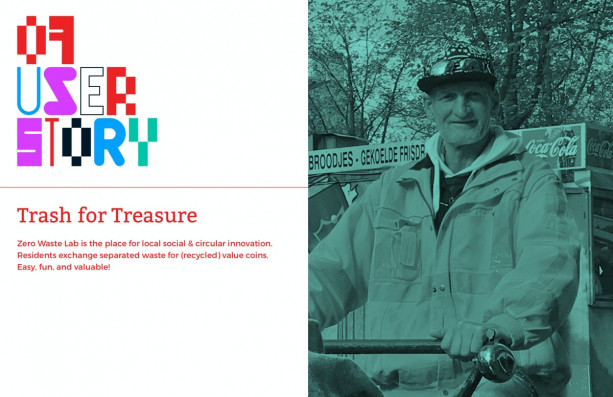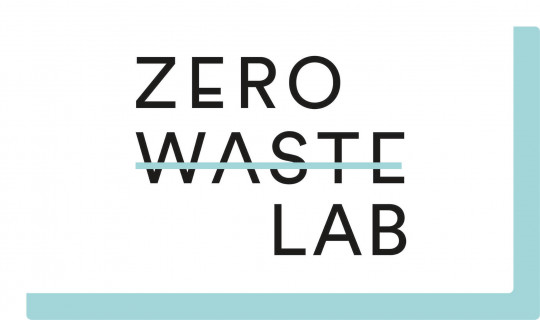The Zero Waste Lab is an initiaitive of De Gezonde Stad (the Healthy City) and is supported by partners Stadsdeel Oost, Icova, Cities Foundation, de Regenboog Groep, Ymere and EY.
Besides, the Dapper Market, local entrepreneurs, the Dapper School and residents join.
Smart Stories
Check the article about the Zero Waste Lab featured in our online magazine 'Smart Stories':

What is the goal of the project?
De Gezonde Stad (the Healthy City) opened the first Zero Waste Lab in the Netherlands: a neighbourhood lab for social & circular innovation. Amsterdam residents (from the Dapperbuurt in the east) hand in their separated waste and get value coins in return. These can be spent in shops in the same area. The waste will be upcycled and recycled. In this way initiator De Gezonde Stad (the Healthy City), together with residents, companies and the municipality, works on a circular economy in Amsterdam.
What is the result of the project?
In Amsterdam, 73 percent of the household waste, ends up in the same wastebin. The first Dutch Zero Waste Lab helps residents to seperate their waste. 'Residents play a crucial role. That is why the separation of waste in the area should be accessible and inviting', says project manager Bonnie Joosten.
Who initiated the project and which organizations are involved?
The Zero Waste Lab is an initiaitive of De Gezonde Stad (the Healthy City) and is supported by partners Stadsdeel Oost, Icova, Cities Foundation, de Regenboog Groep, Ymere and EY.
Besides, the Dapper Market, local entrepreneurs, the Dapper School and residents join.
What is the next step?
First Zero Waste Lab: Dapperbuurt
The first Zero Waste Lab on the Dapperplein 84 in the east of Amsterdam was officially opened on the 28th of November by deputy mayor Sustainability Abdeluheb Choho. Also, the primary school, de Dapperschool, joined the initiative; the kids collected waste for a week and handed it in at the Zero Waste Lab. Enterpreneurs in the area demonstrated several activities; for instance the upcycling of bycycle parts, books, old jenas and food.
What can other cities learn from your project?
Link with the neighbourhood
Residents get value coins for the waste they hand in. The entrepreneurs (on the market) that join, give a discount on products in return. Bonnie Joosten: 'In this way, residents and enterpreneurs cooperate in a strong neighbourhood with a great local economy. The waste will be upcycled in the area or recycled.
The Zero Waste Lab is at the same time a training centre. People with a distance to the labor market are educated to become experts in raw materials, in cooperation with the organization De Regenboog Groep. It is the ambition and aim to start more Amsterdam Zero Waste Labs.





